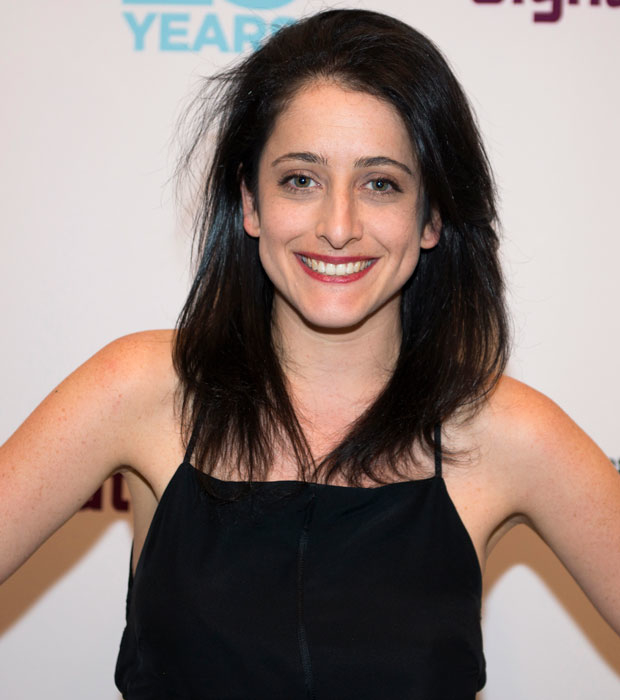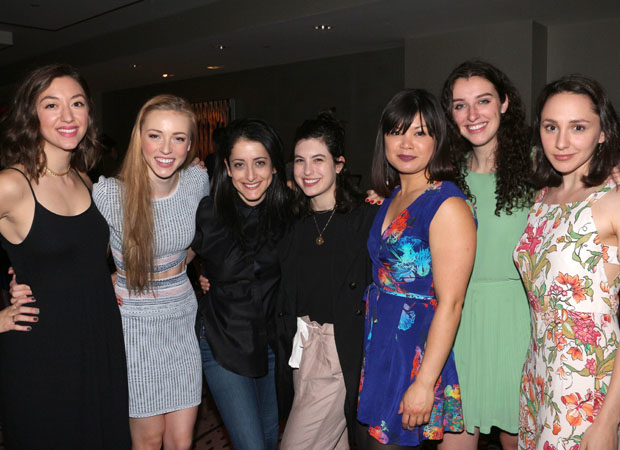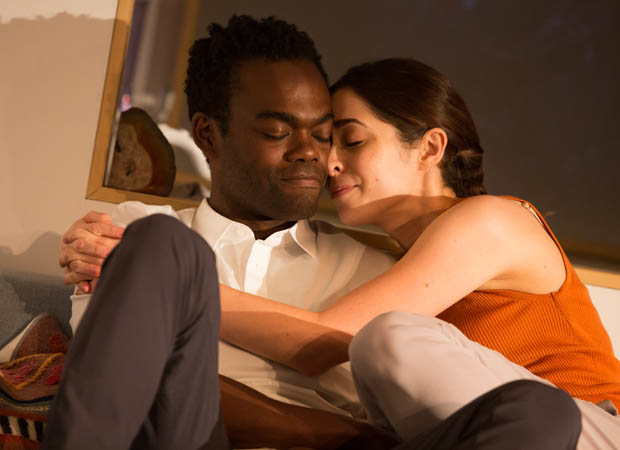Meet Lila Neugebauer, the Director Who Should Be on Your Radar
Neugebauer discusses the path that led her to plays by Annie Baker, Branden Jacobs-Jenkins, Sarah DeLappe, Zoe Kazan, and many others.
As she saw it, Lila Neugebauer had two options: become a Supreme Court Justice or a director.
This fall, she's zigzagging through the halls of Lincoln Center Theater, where she's in charge of two extremely different plays: Zoe Kazan's post-apocalyptic drama After the Blast and Sarah DeLappe's coming-of-age story The Wolves. If you need Lila Neugebauer for anything at the moment, you will not find her in Washington, D.C.
That's better for us here in New York. Though she's been on the city's theater scene and across the country for a decade, Neugebauer has very quickly over the past three years established herself to be the go-to director for new American plays that provide in-depth explorations of the psyche. "Her dauntless insight into the human condition knows no bounds," says the description of her Sam Norkin Drama Desk Award, which she received this year for directing four new plays and an evening of one-acts across 2016-17 season.

(© Allison Stock)
It should come as no surprise to find out that while her parents have a "strong appreciation for the arts," she comes from what she describes as a "mental health household." Her mother is a psychotherapist, and her father, an epidemiologist whose primary focus is on grief and trauma, has spent the past decade examining post-traumatic stress disorder in the wake of the Rwandan genocide.
"Ours was a kitchen table at which human behavior was relentlessly analyzed," Neugebauer remembers. "Why people do what they do, how we get what we want, and the fascinating ways in which we foster obstacles that thwart us from getting what we believe we want, consciously or unconsciously, was a sight of investigative curiosity for me from a young age because it was the conversation I was in. And it's also the stuff of dramatic conflict."
A native Upper West Sider, Neugebauer did grow up seeing theater, though. She made her acting debut in seventh grade at Hunter College High School, appearing in a musical called 7 Minutes in Heaven, written by one of her classmates, Lin-Manuel Miranda. The directing bug bit around the time she turned 17. At Yale, she was an English major who took all of the dramatic literature courses that were offered, while directing on the side. Still, she says with a laugh, "I have no formal training in my profession."
Her interest lies in new American plays, but upon graduating, she says, "I didn't have a particularly clear sense of who was alive and writing new plays in America." Once she settled on directing — not Supreme Court justice-ing — she let her curiosity wander through the literary departments of theaters like Steppenwolf and Berkeley Rep. Her first production in New York as a director was Eliza Clark's Edgewise in 2008, and then she spent a year in residence at the Actors Theater of Louisville, where she assisted on productions and worked with the company's resident actors.
At the same time, she helped form her own company — the ensemble-driven The Mad Ones — alongside fellow co-artistic directors Marc Bovino, Joe Curnutte, and Stephanie Wright. Dedicated to creating works that explore American nostalgia, the Mad Ones made its debut with Samuel & Alasdair: A Personal History of the Robot War, which ran, in various incarnations, from 2009 to 2012.
The Wayside Motor Inn, a little-known A.R. Gurney drama, was the play that put Neugebauer on everyone's radar. The 2015 revival earned her a Drama Desk nomination for Outstanding Director of a Play, and turned off-Broadway's Signature Theatre into her artistic home. For the company, in the span of a year, she premiered new plays by Annie Baker and Branden Jacobs-Jenkins (The Antipodes and Everybody) and revived three one-acts by Edward Albee, Maria Irene Fornes, and Adrienne Kennedy. She will return in 2018 to stage Albee's At Home at the Zoo.

(© Joan Marcus/Daniel J. Vasquez/Monique Carboni)
"I think to be drawn into something, it has to possess some kernel of insight that resonates with me powerfully," Neugebauer notes. "Something that challenges me and ideally disrupts some kind of preconceived idea I have about the way that I live or people operate. I'm drawn to writers who have a specificity in their use of language, an appreciation for rhythm, and an awareness or concern for form."
Those traits certainly describe The Wolves, Sarah DeLappe's Pulitzer finalist that moves to the Mitzi E. Newhouse Theater this November after a pair of engagements in 2016 presented by the Playwrights Realm. The play tells the story of an all-girls indoor soccer team, and Neugebauer's production earned its ensemble cast an honorary Drama Desk Award alongside one for her as well.
It's a testament to the bond Neugebauer has helped create that all but one member of her original cast has returned for the new production. "This is an extraordinary ensemble of women who have a deep and profound love and trust in one another," she says. "They have each other's backs to a degree I could not do justice to in conversation. It has become quite tribal, much like it is for the characters in the play."
The Newhouse, with its three-quarter-thrust configuration, provides a new challenge for the play, which was originally staged with audience members on either side of the playing space. "There's an invitation to make an event that is even more physically virtuosic and dynamic on a larger, more complex scale. It's a very different kind of room now, and that presents a set of opportunities to reimagine, reconfigure, and expand what we've built together."

(© David Gordon)
This season, Neugebauer will reimagine a second show she's already staged. Miles for Mary, a Mad Ones production that premiered in 2016 at the Bushwick Starr, will move to Playwrights Horizons in January. She'll direct Tracy Letts's Mary Page Marlowe for Second Stage and Lily Thorne's Peace for Mary Frances for the New Group shortly thereafter. Does she gravitate toward plays with "Mary" in the title? "Can't say that I do," she says with a laugh and a twinkle in her eye. "Purely coincidental."
As her career continues, she would like to get her hands on some of the classics. The Glass Menagerie and A Streetcar Named Desire immediately spring to her mind. So does Carson McCullers's The Member of the Wedding, which she describes as "a remarkable and infrequently revisited American treasure." She'd also like to stage A Doll's House as a vehicle for Kazan to play Nora (Kazan, the author of After the Blast, has been a dear friend since Neugebauer was 19).
Oh, "and any Caryl Churchill play," she concludes. "I would like, before I die, to direct every play that woman ever wrote, she so galvanizes my imagination."
The highest court in the land will have to wait even longer.

(© Jeremy Daniel)











